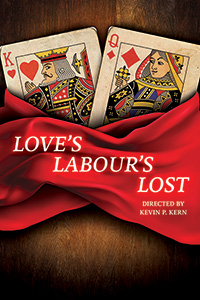Last night, Lisa and I caught Love’s Labor’s Lost by Kingsmen Shakespeare Festival at the start of its closing weekend on the campus of California Lutheran University in Thousand Oaks, California. Now, those of you who have been around since (near) the beginning of this project probably know how I feel a out Love’s Labor’s Lost. Not a huge fan (it ranks down in the lower quarter of my favorite plays). People who’ve been around nearly as long also know how I feel about Kingsmen. A big fan.

So which wins out?
Continue reading “Theater review: Love’s Labor’s Lost by Kingsmen Shakespeare Festival”
